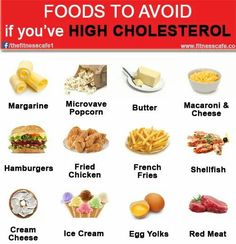Cholesterol
According to the 2018 guidelines on the management of blood cholesterol published in the Journal of the American College of Cardiology (JACC)Trusted Source, these are the acceptable, borderline, and high measurements for adults.
All values are in mg/dL (milligrams per deciliter) and are based on fasting measurements.
| Total cholesterol | HDL cholesterol | LDL cholesterol | Triglycerides | |
|---|---|---|---|---|
| Good | Less than 200 (but the lower the better) | Ideal is 60 or higher; 40 or higher for men and 50 or higher for women is acceptable | Less than 100; below 70 if coronary artery disease is present | Less than 149; ideal is <100 |
| Borderline to moderately elevated | 200–239 | n/a | 130–159 | 150–199 |
| High | 240 or higher | 60 or higher | 160 or higher; 190 considered very high | 200 or higher; 500 considered very high |
| Low | n/a | less than 40 for men and less than 50 for women | n/a | n/a |
Lifestyle changes
“One misconception is that people can have poorly controlled cholesterol for years and then decide to take action. By then the plaque could already have built up,” says Dr. Eugenia Gianos, director of cardiovascular prevention for Northwell Health in New York.
The good news is that lifestyle changes are reasonably effective in helping you reduce cholesterol levels. They’re also fairly straightforward and can be done at any age and within most abilities.
- Exercise if you can. Physical activity can help you lose weight and boost your HDL cholesterol. Aim for 30 to 60 minutes a day of moderate cardiovascular exercise, such as biking, jogging, swimming, and dancing, at least 5 times a week.
- Eat more fiber. Try to add more fiber to your diet, such as replacing white bread and pasta with whole grains.
- Eat healthy fats: Healthy fats include olive oil, avocado, and certain nuts. These are all fats that won’t raise your LDL levels.
- Limit your saturated-fat intake. Reduce the amount of high-saturated fatty foods like cheese, whole milk, and high-fat red meats.
- Limit red and processed meats, sodium and sugar-sweetened foods. A heart healthy diet focuses on fruits, vegetables, whole grains, poultry, fish and nuts, while limiting processed meats, excess sodium, and added sugar.
- If you smoke, consider quitting. Smoking decreases HDL cholesterol. Quitting can help you better manage your cholesterol levels.
- Limit your alcohol intake. The American Heart AssociationTrusted Source recommends drinking alcohol in moderation, which means, on average, no more than two drinks per day for men and no more than one drink per day for women. Drinking too much alcohol can raise levels of triglyceride fats in the bloodstream and lead to conditions such as hypertension (high blood pressure) and atrial fibrillation.
- Get to a healthy-for-you weight. Losing excess body weight can help lower your cholesterol levels.
- Check your levels. You can see a doctor or use an at-home test kit to check your cholesterol levels.
Cholesterol Levels: By age, LDL, HDL, and More (healthline.com)
